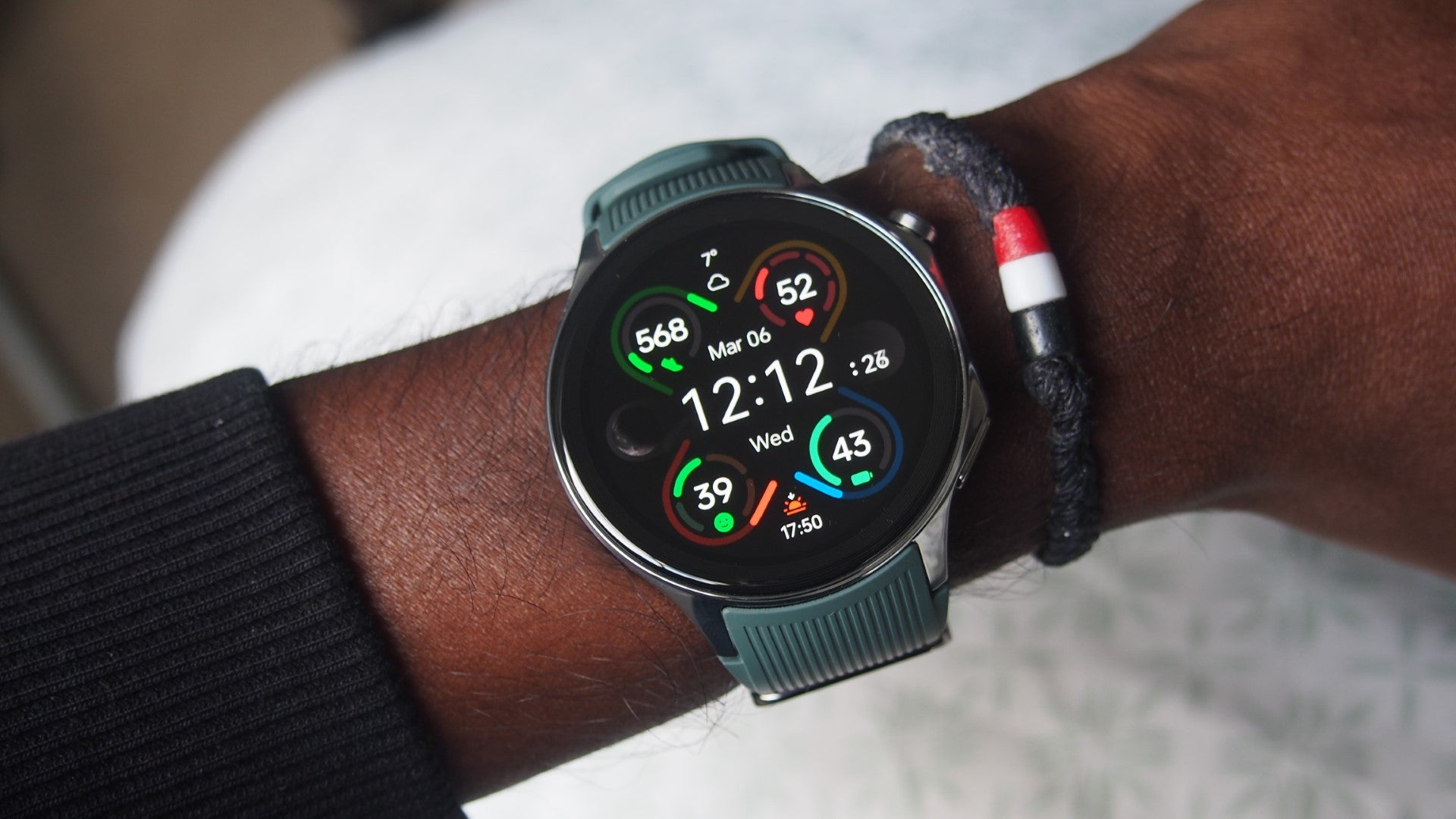Coros Vertix Review
A running watch that lasts up to 45-days
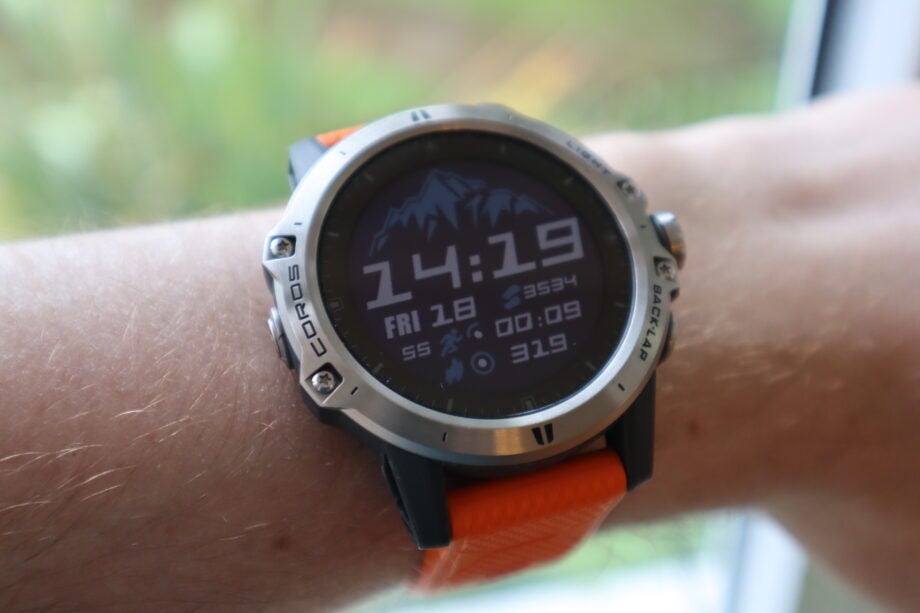

Verdict
Coros has created something truly special for its most premium watch. The Vertix might be priced a little too high for some people’s budgets, but for what you get in return, it is undeniably one of the best smartwatches for running and hiking that you can buy right now.
Pros
- Unbeaten battery life of up to 45-days
- Connects to GPS almost instantly
- Lightweight but still near-indestructible
Cons
- Very expensive
- Too daunting an ecosystem for newcomers
- Not the best for strength training
Availability
- UKRRP: £539.99
- USARRP: $599.99
Key Features
- Up to 45-day battery life
- Waterproof up to 15ATM (150 metres)
- Still works in environments as cold as -20°C
Introduction
The Coros Vertix has a feature list and a price tag that’ll make you do a double take.
After having reviewed the brilliant Coros Pace 2, it has come as no surprise that the sight of Coros watches in the wild is fast becoming a regular occurrence. While Garmin and Fitbit have dominated the casual and recreational fitness market, Coros has honed its devices to appeal specifically to runners by offering long battery life, quick GPS access and so much data that you could spend hours pouring into the details.
While the Coros Pace 2 was an affordable wearable at just £179.99, the powerful Coros Vertix is anything but, with an eye-watering price tag of £539.99. For that high sum however, you do get one of the most robust smartwatches on the market, and after having spent several weeks with the device, I can easily say that the Coros Vertix is well worth the money.
Design and screen
- The Vertix packs a sturdy build designed to withstand serious knocks
- Low-power Memory LCD screen used to help with battery life
- Waterproof up to 15ATM
The Vertix is described by Coros as a ‘GPS Adventure Watch’, and the design certainly fits that bill. From the front-facing screws to the massive rotating crown and titanium chassis, the Coros Vertix means business – in the time that I’ve been wearing it, I have failed to notice even the most minor of scratches, so I dread to think what might be needed to actually put a dent in this thing.
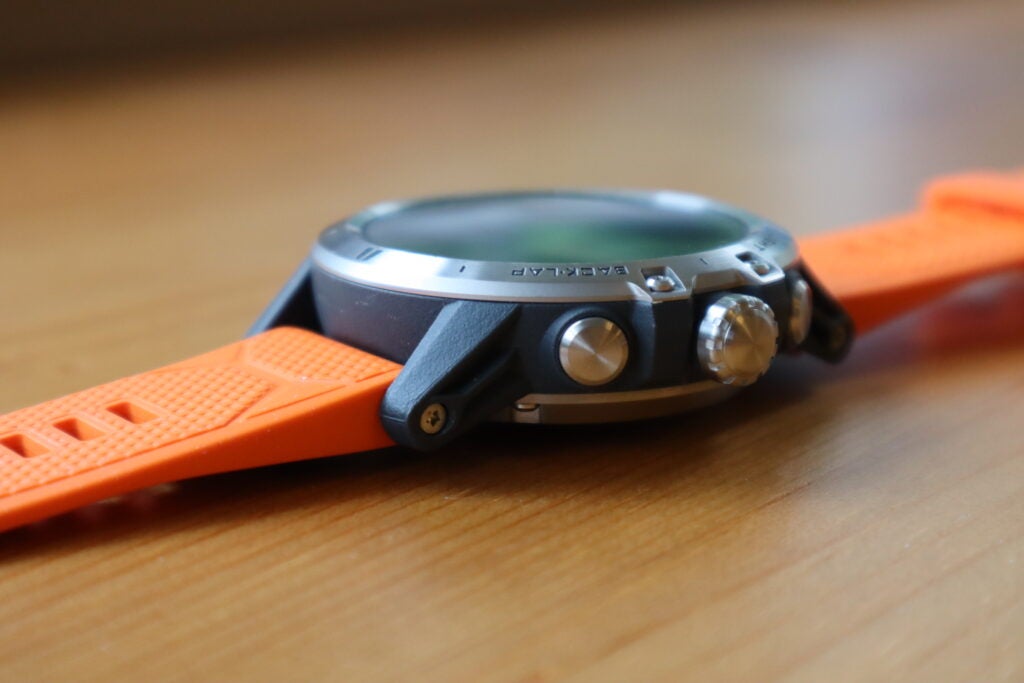
In spite of its industry-leading durability, the Coros Vertix never felt cumbersome to use, largely because the device weighs in at a modest 54 grams without a strap. Compared to the unyielding Casio G-Shock GBD-H1000 (the size of which still gives me nightmares), the Vertix is refreshingly light for an adventure watch.
Just like the Coros Pace 2, the Coros Vertix uses a memory LCD display which allows it to achieve its lofty battery credentials, but it is a far more dim experience than say the OLED display available on the Garmin Venu 2. Luckily for the Vertix, there is a backlight that can be activated either through a button tap or a wrist raise, so it’s rarely ever an issue.
What might feel more jarring to some is the lack of touchscreen controls when navigating the UI. Even though I much prefer physical controls when it comes to running watches (trying to use a touchscreen mid-run is a skill unto itself), I’m sure that there are some who might prefer a modern control method. If you do decide to persevere, then you’ll be glad to know that the Vertix is even easier to navigate than the Pace 2, thanks to the aforementioned rotating crown and two push buttons that feel wonderfully tactile. Strangely enough, there is some capability for touch controls, but the feature only appears during map navigation.
Features and performance
- GPS connects in as little as five seconds
- Can continue to work at -20°C
- Don’t expect smartwatch features like NFC or offline music playback
While the Vertix stays true to Coros’ core values as a running watch company, it does take on an additional role as a watch that can be used by folks who enjoy adventuring in the great outdoors. GPS capabilities play a huge role in this regard, being able to also latch on to GLONASS and BeiDou satellites for increased coverage.
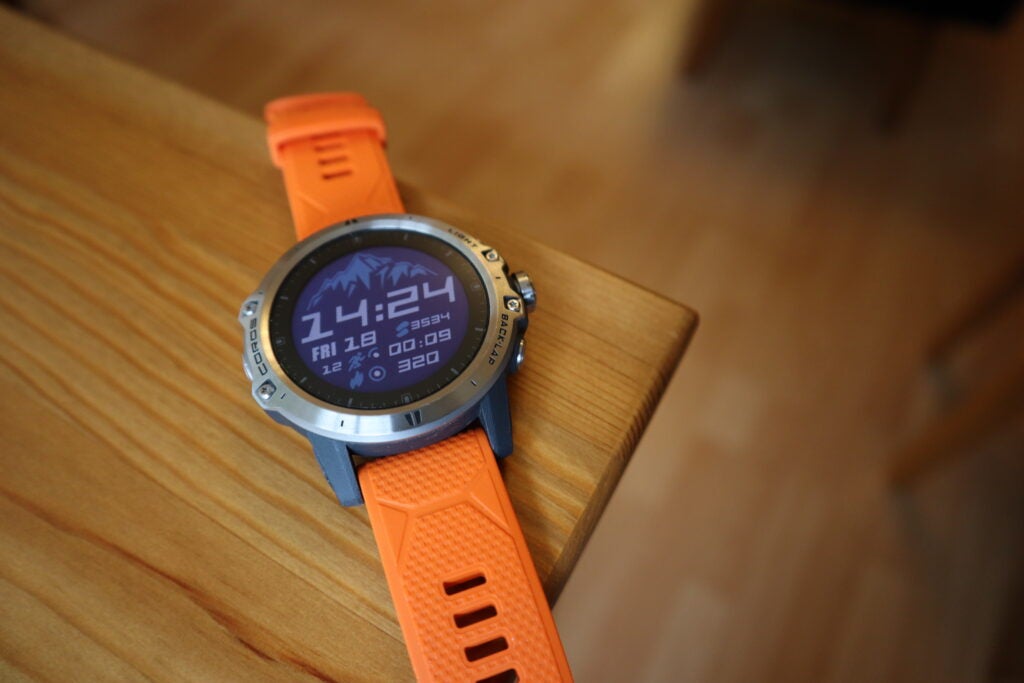
I try to avoid using hyperbole in my reviews, but as a crucial point of reference, it needs to be said that the Coros Vertix is the fastest watch I’ve ever tested from a GPS perspective.
Establishing a connection took an average of 15 seconds, but on one occasion, the tracking was ready to go in just five seconds. I’ve never tested anything like it, and you can be sure that if I’m ever venturing into the wild, then I’ll be taking the Coros Vertix with me for safe measure.
To truly earn its stripes as an outdoors watch, the Vertix has an unbelievable spec sheet when it comes to durability. Not only can the watch survive depths of up to 15ATM (perfect for deep divers), but it can continue to operate in temperatures as low as -20°C. Luckily for me, the UK hasn’t plummeted to those temperatures recently, although given just how efficient the Vertix has been elsewhere, it isn’t difficult to imagine the watch holding up to these claims.
Sleep tracking also stars as part of Vertix’s feature set, but much like its approach to fitness tracking, it’s a very data-heavy set-up that will put off those who aren’t versed in what it all means. For instance, you can see the amount of time you spent in deep and light sleep, but unlike with the Whoop Strap 3.0 or even the Garmin Venu 2, you don’t receive any worded feedback on how you might improve your overall sleep quality.
The Vertix also lacks support for offline music storage which, for someone like me who prefers leaving their phone at home during a run, can be a real hassle.
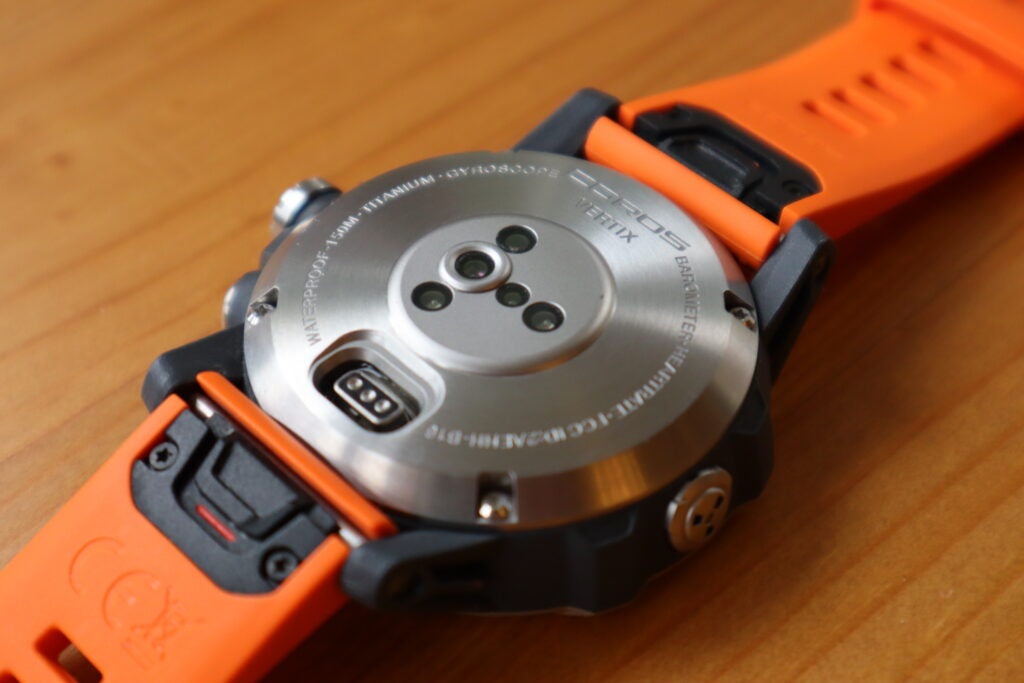
Fitness tracking
- Coros’ ecosystem is still superb for athletes and enthusiasts
- Not the most ideal set-up for newcomers
- HRM tracking has some issues in determining average BPM
Between my time with the Coros Pace 2 and this more recent testing with the Vertix, very little has changed to make me rethink my stance on Coros’ approach to fitness tracking – but that isn’t necessarily a bad thing.
Just like with the Pace 2, the Vertix doesn’t hold your hand in the same way that Fitbit’s wearables do, as the device expects you to be a fairly experienced athlete who can read chart after chart of health data and comprehend it all.
At the Vertix’s high price point however, I don’t think anyone’s going to make an accidental purchase thinking that it’s the go-to device for starting out and so the data-heavy approach makes a lot more sense.
After a run, you can check in on your pace, cadence, stride, running power, elevation and even the training load in relation to your fitness level. You can spend a serious amount of time pouring into the data that’s on offer here, and I have no doubt that that’s what enthusiasts will do.
You can even set up a detailed workout schedule within the Coros app which can then be synced with the Vertix. While there’s an abundance of clearly defined strength training exercises that can be added to your schedule, I still wouldn’t recommend using the Vertix purely to track weightlifting. In my own experience, rep tracking can be wildly inconsistent and unlike Garmin’s devices, you can’t change the number of reps counted at the end of each set to correct any mistakes.
What surprised me the most given just how accurate the Coros Pace 2 proved to be, is how the Vertix fared with heart rate tracking.
For the most part, the Vertix could pick up a fairly accurate representation of my highest HRM during a workout when compared to a dedicated chest strap, with an average discrepancy of 1-2 points.
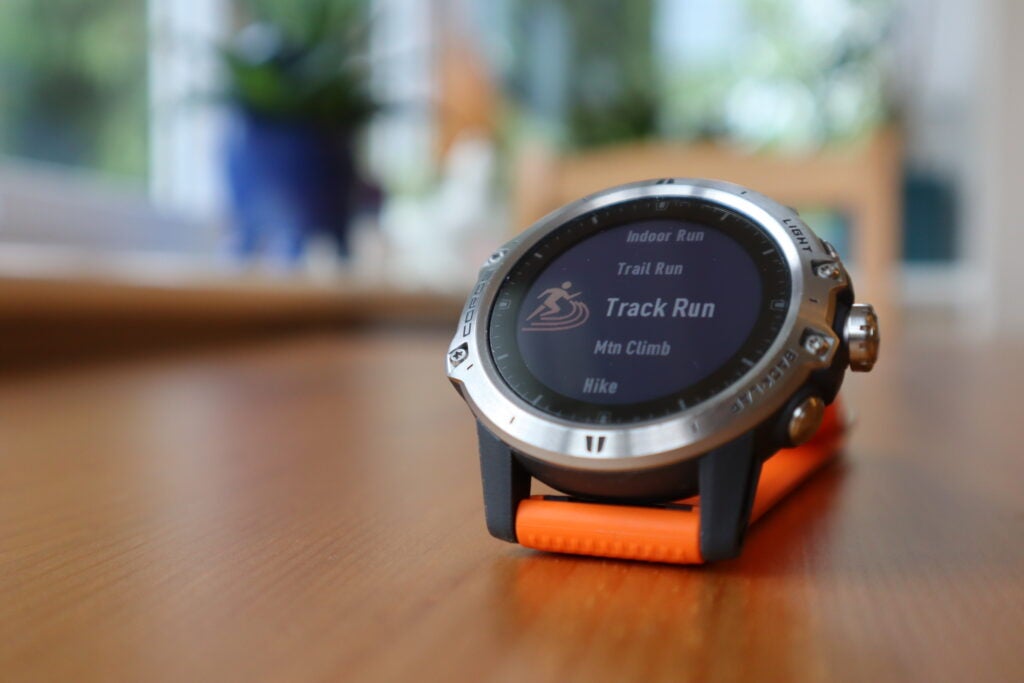
It was a different story completely when looking at my average HRM. During one outdoor run, the Vertix picked up an average of 148BPM while the chest strap threw back a much higher 164BPM. This is a shame, as it flies in the face of how well the Vertix performs elsewhere.
It’s also worth mentioning the addition of EvoLab, which wasn’t available during my period of testing, but it is now available at the time of publishing. EvoLab is Coros’ new software that offers more personalised insights into your activity, letting you know how much training load you can take on relative to your fitness level, recent workouts and the quality of your sleep. Much like the aforementioned Whoop Strap, EvoLab is designed to highlight the importance of rest in preventing overtraining and potential injury.
Battery life
- Up to 45-days of battery life on a single charge
- With heavy usage, the Vertix still lasted 31 days
- A full charge takes roughly 85-90 minutes
When it comes to battery life in tech products, I’ve long since accepted that a daily top-up for my smartphone is just an essential part of my routine, but the more devices that can break out of this cycle the better.
It’s for that reason why I applauded Mobvoi for finally making a Wear OS watch that could last an entire weekend with the TicWatch Pro 3. Compared to the Coros Vertix however, it’s almost as if the competition is running several decades out of date.
Coros quotes an unbelievable 45-day battery life for the Vertix – when was the last time you heard of any device lasting even remotely as long? In actual use putting the Vertix through its paces via multiple strength workouts and GPS-enabled runs a week, I was able to get through 31-days of usage before the battery got to 6%.
Based on that testing, I am certain that other users will be able to get closer to that 45-day mark with fewer workouts tracked but even so, 31-days is nothing to be sniffed at and it’s the longest run-time I’ve ever gotten from any contenders for the best smartwatch.
Charging the Vertix back up to a full battery didn’t take that long either, requiring an hour and a 25 minutes before it was ready to go with 100% in the tank. Sure, there are some wearables out there that can charge quite a bit faster than that but given that you’re getting – at the very least – a month’s worth of battery life, it’s hardly a setback.
Best Offers
Should you buy it?
You’re obsessed with running: The Vertix has its sights set on appealing to upper echelon of the running community, with best-in-class GPS tracking and battery life.
You’re at the start of your fitness journey: Unless you’re willing to put the time into learning its systems, the Vertix and the Coros app can be a bit daunting, and you’ll find more forgiving experiences from Garmin and Fitbit.
Final thoughts
Having tested a lot of wearables, it’s rare these days that one comes along and leaves me genuinely impressed, but the Coros Vertix has done just that.
Its prowess in tracking outdoor running and cycling is second to none with super-fast GPS connectivity, and the near 45-day battery life will make it hard for me to go back to any other wearable after this.
As is still the case with Coros’ daunting ecosystem, the Vertix isn’t the best option for newcomers, but it can offer an abundance of vital information to keep dedicated athletes on top of their game.
How we test
We thoroughly test every smartwatch we review. We use industry standard testing to compare features properly and we use the watch as our main device over the review period. We’ll always tell you what we find and we never, ever, accept money to review a product.
FAQs
Yes, the Vertix is waterproof up to 15ATM (150 metres)
No, the Vertix runs on Coros’ own-brand software
The Coros Vertix does not allow for offline music playback




